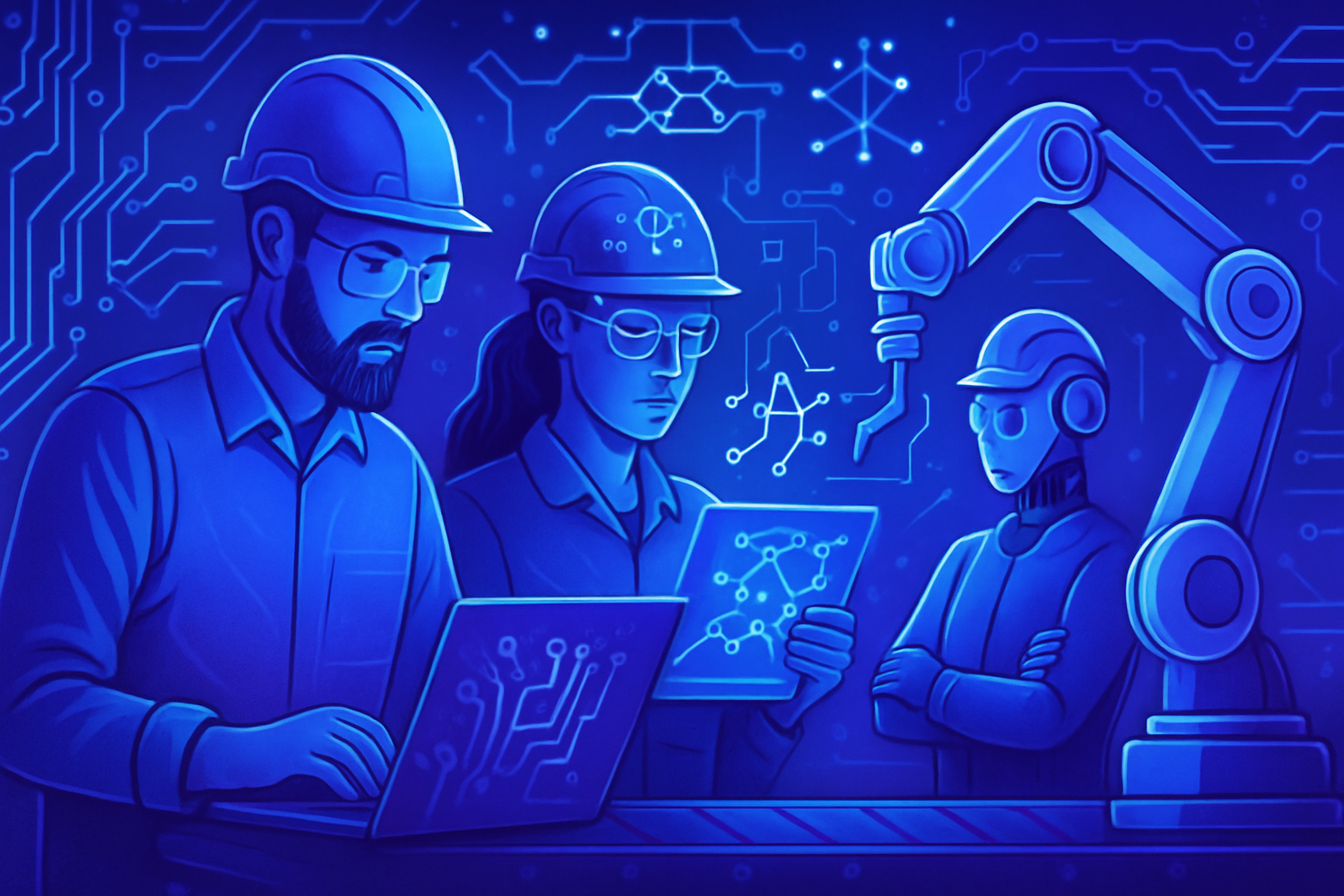The era of intelligent manufacturing fundamentally reshapes the industrial landscape. This new digital environment highlights an urgent need for skills in artificial intelligence and cybersecurity. Companies must now navigate through increasing challenges, such as managing cyber risks, to maintain their competitive advantage.
Digital transformation reveals an ardent search for talents capable of optimizing processes while accurately classifying data. The use of intelligent automation becomes a necessity to enhance organizational resilience. Indeed, skilled workers in artificial intelligence and cybersecurity are transforming into key players of this technological revolution, meeting the urgent market demands.
The rise of intelligent manufacturing
The manufacturing sector is experiencing an unprecedented digital transformation. According to Rockwell Automation’s annual report on the state of intelligent manufacturing, 56% of manufacturers are currently driving intelligent manufacturing initiatives, and 20% have deployed them at scale. This transition raises new requirements, particularly in terms of skills, in an increasingly competitive environment.
Contemporary challenges in the sector
The rising energy costs have lost significance for manufacturers. However, cybersecurity threats, fierce competition, and workforce challenges have become major concerns. Inflation and economic uncertainty amplify these obstacles, forcing decision-makers to rethink their strategies for the coming year.
Role of artificial intelligence
Artificial intelligence (AI) and machine learning (ML) present themselves as promising solutions to mitigate these risks. Approximately 50% of surveyed manufacturers plan to use AI and ML to improve quality control over the next 12 months. This approach is part of a broader quest for profitability and efficiency through automation.
Adjusting supply chains
In the face of dynamic market conditions, companies seek to optimize their supply chains. Around 28% of organizations are actively evaluating their critical suppliers to better address external risks, which necessitates consideration of procurement and pricing strategies.
The search for key skills
The shortage of skilled workers is identified as the main obstacle to the competitiveness of manufacturers. To address this issue, 41% of companies are turning to AI and automation to fill this gap. This transition to intelligent manufacturing boosts the demand for profiles with skills in AI and cybersecurity.
Workforce transformation
Manufacturing sector leaders predict that AI will have a significant impact on workforce-related challenges. This investment in technology will free skilled workers for higher value-added tasks, thus improving productivity. Process optimization ranks among the primary anticipated uses of AI in the coming year.
Cybersecurity: a growing priority
With the rise of cyber threats, cybersecurity has become an unprecedented priority for manufacturers. Nearly 49% of manufacturers plan to integrate AI and ML into their cybersecurity strategies, up from 40% the previous year. This growing need underscores the value placed on cybersecurity skills.
Skills of tomorrow
Companies aspire to establish an optimal combination of human and technological talents to enhance their security. Essential skills for the future will include knowledge of AI, expertise in cybersecurity, and problem-solving abilities. This evolution of skills is crucial as digital threats evolve.
A perspective on the future
The development of AI and ML technologies will shape the manufacturing sector in the coming months. Companies are gathering more data, but 44% of them are using it effectively. Improving this data utilization is vital for strengthening both security and operational resilience.
In this context, digital transformation proves to be not only a necessity for improving profitability but also an essential solution for overcoming contemporary challenges faced by manufacturers. The forging of skills in AI and cybersecurity becomes essential for thriving in this new market.
Frequently asked questions
What AI skills are most sought after in the intelligent manufacturing sector?
The most sought-after skills include mastery of machine learning algorithms, data management, predictive analytics, and the ability to interpret results to optimize manufacturing processes.
How does cybersecurity influence intelligent manufacturing practices?
Cybersecurity is crucial because intelligent manufacturing systems are connected to the internet, making them vulnerable to cyberattacks. Strong cybersecurity skills help to protect critical systems and ensure data integrity.
Why is the demand for skilled workers in AI and cybersecurity increasing in the manufacturing industry?
With the growing adoption of digital technologies, manufacturing companies need professionals capable of managing and analyzing complex data while protecting their infrastructures against increasing security threats.
What training or certifications are recommended for working in intelligent manufacturing?
Recommended training includes certifications in artificial intelligence, cybersecurity, and degrees in industrial engineering or computer science, along with specialized courses in data analysis and production system management.
What is the impact of artificial intelligence on worker productivity in manufacturing?
The integration of AI reduces manual workload, thereby increasing productivity by allowing workers to focus on higher value-added tasks.
Must workers upskill to adapt to changes in the manufacturing industry?
Yes, professional upskilling is essential to adapt to ongoing technological changes, especially in AI and cybersecurity, in order to remain competitive in the job market.
How does the implementation of AI and cybersecurity contribute to operational resilience?
These technologies allow for anticipating and reacting quickly to disruptions, optimizing operations, and securing systems, thereby contributing to better resilience against unforeseen events.
What role does data analysis play in developing intelligent manufacturing strategies?
Data analysis is fundamental for providing actionable insights, improving product quality, optimizing supply chains, and anticipating market demands.






